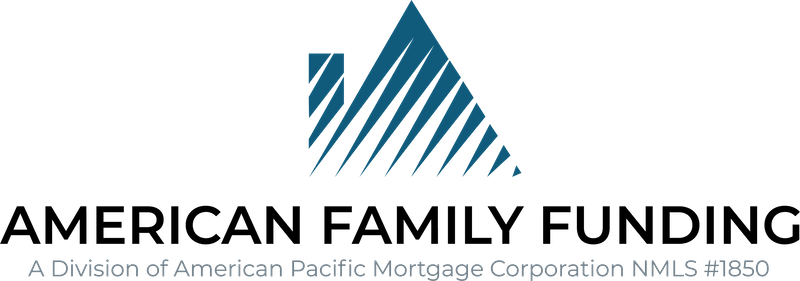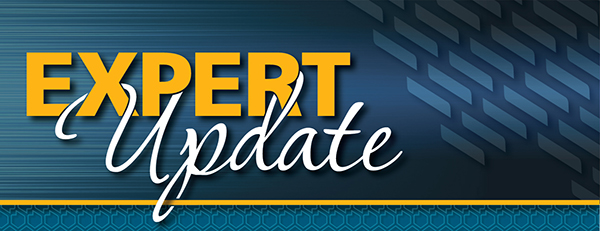Frequently Asked Questions
LOANS
What refinancing options do I have?
If you’re looking to refinance, American Family Funding can help you get what you need. Every situation is different and so is the choice of loans. Give us a call and we’ll be able to guide you through the process.
What is an FHA loan, and what do I need to do to qualify?
FHA loans are insured by the Federal Housing Administration so that lenders like American Family Funding can get you better pricing. There are many cases where FHA loans can be an opportunity, particularly for first-time homebuyers or those looking to buy a fixer-upper. The goal of the Federal Housing Administration and American Family Funding is to facilitate home ownership, and sometimes FHA loans are just the tool. Call us today and we’ll help you find out more about qualification.
What is a VA Loan?
A Veterans Affairs (VA) loan is a mortgage loan in the United States guaranteed by the U.S. Department of Veterans Affairs and issued by qualified lenders.
The VA loan was designed to offer long-term financing to eligible American veterans or their spouses (provided they do not remarry). The basic intention of the VA direct home loan program is to supply home financing to eligible veterans in areas where private financing is not generally available, as well as to help veterans purchase properties with no down payment. Eligible areas are designated by the Department of Veterans Affairs as housing credit shortage areas, and are generally rural areas and small cities and towns not near metropolitan or commuting areas of large cities.
The VA loan allows veterans 103.15% financing without private mortgage insurance or a 20% second mortgage and up to $6,000 for energy efficient improvements. A VA funding fee of 0-3.15% of the loan amount is paid or financed to the Department of Veterans Affairs. In a purchase, veterans may borrow up to 103.15% of the sales price or reasonable value of the home, whichever is less. Since there is no monthly private mortgage insurance (PMI), more of the mortgage payment goes directly towards qualifying for the loan amount, allowing for larger loans with the same payment. In a refinance, where a new VA loan is created, veterans may borrow up to 90% of reasonable value, where allowed by state laws. In a refinance where the loan is a VA loan refinancing to VA loan (IRRRL Refinance), the veteran may borrow up to 100.5% of the total loan amount. The additional .5% is the funding fee for an VA Interest Rate Reduction Refinance.
VA loans allow veterans to qualify for loans amounts larger than traditional Fannie Mae/conforming loans. The Department of Veterans Affairs will insure a mortgage where the monthly payment of the loan is up to 41% of the gross monthly income vs. 28% for a conforming loan, assuming the veteran has no monthly bills.
What is a USDA Loan?
USDA loans offer 100% financing to qualified buyers, and allow for all closing costs to be either paid for by the seller or financed into the loan. USDA offers some the lowest rates of any loan, and always have a fixed interest rate. A USDA loan is a government-insured home loan that allows you purchase a home with no money down.
USDA Loan Eligibility will be determined by three factors:
1) Credit Worthiness:
When an underwriter reviews your credit history on a USDA loan, the principal thing they will be looking for is a history of paying your bills in a timely fashion. If you have had blemishes in the past, they may be overlooked as long as you have re established your credit over the past 12 months. Generally, any open judgments or collections will need to be paid off before you close on your new home.
2) USDA Loan Income Restrictions:
You will need to be able to document your income on a USDA loan. USDA will generally want to see a two-year history of employment or consistent income. Exceptions on the two-year requirement can be made for applicants such as students. On a USDA loan, assets are not required for approval, but can help overcome any possible blemishes on your credit.
3) Where You Live:
In order to qualify for a USDA loan, your home must be located in a USDA-designated rural area. You can check the USDA eligibility of your county. It might surprise you just how many areas of the United States do qualify for these no-money-down home loans. The goal of the USDA loan program is to help our nation’s small, rural communities thrive by making land and property more affordable.
What is a short sale?
Short sale properties are negotiated between the borrower and the bank. Most times, the bank has decided that this course of action will be more efficient and profitable than the foreclosure process. Your real estate agent can tell you more about short sale opportunities, and American Family Funding can work with you on financing these properties.
What is a Reverse Mortgage?
A reverse mortgage allows you to borrow against the equity you’ve established in your home. To be eligible, you must be age 62 or older and own your home free and clear, or have a remaining mortgage balance that can be paid off by the reverse mortgage. You’ll want to consult a tax advisor to confirm this, but in most cases, a reverse mortgage gives you access to tax-free funds. Instead of making payments, you can choose to receive them, thus the “reverse.” You can also now purchase a home with a Reverse Mortgage and make no payments as long as you live in the home, pay your property taxes and insurance, and maintain proper upkeep of the property. Ask your Reverse Mortgage Specialist for more information.
What is a Jumbo Loan?
The definition of jumbo loan varies from state to state, so when you begin your home buying process, you will need to research jumbo loans in your local area.
Generally, a jumbo loan is a non-conventional loan that major agencies, such as Freddie Mac or Fannie Mae, will not buy and trade because of the cost. When a lender offers a mortgage loan, they usually do not keep the mortgage loan for the duration of the time it takes you to pay the loan back. Instead, they sell the loan on the secondary market to agencies such as Freddie Mac and Fannie Mae.
These two major institutions are very powerful in the mortgage market, and most lenders want to be able to sell mortgage obligations to them in order to free up cash, or to obtain liquidity to do more business. Since a jumbo loan fails to qualify for Fannie Mae and Freddie Mac guidelines, borrowers must often pay extra to help lenders countenance the extra risk they encounter for financing it.
Jumbo loans were designed to help high-income individuals afford luxury homes or smaller homes in highly desirable areas. However, when home prices rise and houses become more expensive, more and more middle-income Americans have had to turn to jumbo loan financing to buy their dream homes.
What is an FHA Loan?
FHA loans are insured by the Federal Housing Administration so that lenders like American Family Funding can get you better pricing. There are many cases where FHA loans can be an opportunity, particularly for first-time homebuyers or those looking to buy a fixer-upper. The goal of the Federal Housing Administration and American Family Funding is to facilitate home ownership, and sometimes FHA loans are just the tool.
To qualify for an FHA loan, you’ll need to have reasonable debt to income ratios. In general, you have to be better than 29/41, but some programs allow up to 55%. In addition, you have to have decent credit. You don’t need wonderful credit to get an FHA loan. Call us today and we’ll help you find out more about qualification.
What is a Conventional Loan?
A conventional loan is any mortgage that is not guaranteed or insured by the federal government. A conventional loan is generally referring to a mortgage loan that follows the guidelines of government sponsored enterprises (GSE’s) like Fannie Mae or Freddie Mac. Conventional loans may be either “conforming” or “nonconforming”. Conforming loans follow the terms and conditions set by Fannie Mae and Freddie Mac. Nonconforming loans don’t meet Fannie Mae or Freddie Mac guidelines, but they are also considered conventional. Whether you’re buying a home or want or refinance your mortgage, a Conventional Loan might be right for you. If you’re unsure about your credit rating, or have concerns about a down payment, Conventional Mortgages can give you peace of mind with super low closing costs and flexible payment options.
I’m a first time homebuyer, where do I start?
The process of buying a home doesn’t have to be overwhelming. The first step is to give us a call and let our experts guide you through the process. We work with you and your real estate agent to bring your dreams to life.




